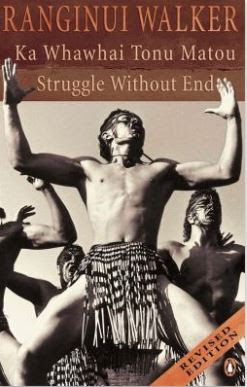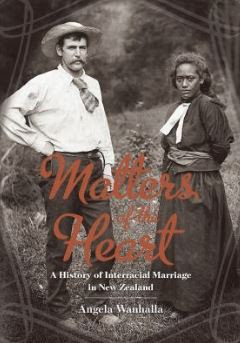Books of Mana
 |
| Image: Books of Mana: 180 Māori authored books of significance |
He kaimahi from Auckland Libraries interviews Dr. Spencer Lilley on Books of Mana
Rin: E te rangatira, Tena koe. Thankyou so much Spencer for joining us here to chat. As you already probably know, I loved your classes at Te Herenga Waka. It was so cool learning about some of the amazing taonga here at Auckland Libraries to assist with whakapapa, tikanga Māori, Reo Rangatira and Waka histories. So it was great coming across your chapter while perusing through this beautiful new pukapuka - Books of Mana (Otago University Press 2025). Can you please tell us how did you happen to contribute to this pukapuka?Spencer: I was invited to participate by the editors about five years ago, after they had published the list of books. They had received a grant from Ngā Pae o te Māramatanga to produce the book and sent out invitations to people who they thought would have something to contribute. Luckily, one of those people was me.
R: Why do you think it’s important to publish annotated bibliographies of Indigenous authors such as Books of Mana?
 |
| Image: Tikanga Māori living by Māori values |
S: I find hard to only choose one, so I’m going to cheat and name three - Ranginui Walker’s Ka Whawhai Tonu Matou - as the first Māori history of Aotearoa is a must for anyone wanting to get another view than those written by Michael King and Keith Sinclair. Hirini Moko Mead’s Tikanga Māori: living by Māori values is highly readable and informative and if you have time to only read one book on tikanga Māori, then it should be this one. Finally, Decolonizing methodologies by Linda Tuhiwai Smith is a must for those trying to understand why it’s important to hear Indigenous voices when conducting research.
 |
| Image: Ka Whawhai Tonu Matoa: Struggle without end |
R: Yes I love ALL these pukapuka so much! I gave my copy of Decolonising Methodologies to my daughter-in-law who’s studying architecture at Auckland University. That pukapuka is like my bible.
S: I have all three editions, and I believe that the book has probably made the biggest impact on the global academic and research market by a New Zealand academic author (especially in the 21st century) and has been transformational for Indigenous peoples’ who wish to set the parameters for anyone wishing to conduct research with their community.
 |
| Image: Decolonizing methodologies: research and indigenous people |
R: I really adore the cover of its first edition. There are so many Kairangahau Māori leading the world with groundbreaking community mahi. I loved how you included Ngā Kete Matauranga in your chapter. One of the editors, Linda Waimarie Nikora, was my professor a few years back. She’s incredible - she introduced me to many groundbreaking Indigenous research, including her and whanau’s transcendent mahi on Tangihanga.
 |
| Image: Ngā Kete Mātauranga: Māori scholars at the research interface |
R: Any other (incl. online) bibliographies you’d like to recommend?
S: Not so much a bibliography but a database - Kōmako- which is a bibliography of items written by Māori (in English). It provides information about items that are fiction and nonfiction, poetry and other creative forms.
R: I really rate Kōmako too! Personally, it’s been a great resource for my mahi and university studies. Considering how far Māori publishing has come so far, how do you see the future of it?
S:The development of Huia Publishers has certainly changed the landscape of Māori publishing over the last 30 years and I think that other publishers who might have monopolised the market in the past have had to step up their game, which is great for a book lover like me. However, the publishing industry in Aotearoa is still relatively small, and although the market for Māori books has grown in recent years, I think that it is risky for any publisher to release a book unless they are sure of a receptive market, so it will still be hard for an unknown writer to get recognition. This might lead to more self-publishing by those who want to get their works out in the open and being read.
R: In your opinion, how might AI affect Indigenous publishing?
S: In terms of technology, I think we are still at the floppy-disk stage of AI, and it is obviously going to become more sophisticated over the next few years. What worries me is that people might be able to ask for a book to be compiled for them on a particular topic, with the content being drawn from a range of sources (credible and not so credible). At the moment, these large language models and AI tools are scraping content from digital archives, especially items out of copyright or that are available in an open-access format. So there is a danger that traditional knowledge of Indigenous peoples, including the works of Indigenous authors being appropriated, repackaged and misused, with the possibility of this being used to fuel old prejudices or resulting in the spread of disinformation or misinformation.
R: At the library, we’ve been encountering many self published books which claim to be scholarship but are seriously questionable (often skewed). Do you have advice for libraries and communities on how to manage this?
S: There will obviously be some self-published books that won’t always meet the standards for a collection, but as a rule, I don’t think they should be dismissed automatically. Like any decisions about what to add to a collection, I would expect that this would be guided by a collection policy and the use of due diligence by those making the decision. Some things to watch out for are the background of the author(s), what else they have published, what sources they used and how accurate and current these are. The latter can be done by reading parts of the book where you already have some knowledge and see how they have covered it.
R: Is there currently an Indigenous-led initiative to monitor and create the necessary tech in order to combat these inevitable problems?
S: Personally, I am not aware of any initiatives. However, if there were a way of authenticating items approved by Indigenous communities then that would be a very worthwhile project. In a way that is what the creators of the Te Takarangi list have done here. However, there are a lot more items that could be added to the 180 that have already been counted
R: Is there anything else that might be a threat to Indigenous publishing?
S: Apart from the impact of AI, continued cuts to funding are of concern, as this has the potential for reducing the resources available to both creative and non-fiction writers and researchers. We have seen already that with the cutbacks in NZ to funding for the humanities and social sciences meaning that far fewer Māori researchers will be able to undertake large research projects that could end up becoming books - Notable books like this one (Books of Mana), and Mau Moko: the world of Māori tattoo, are great examples of books that emerged from Marsden Fund Awards in humanities and social sciences.
 |
| Image: Mau Moko: The World of Māori Tattoo |
R: That’s a depressing prospect, Spencer. If there’s no support for vital scholarship and innovations, do you know how the publishing sector might find the funds? What other options are there? What funding alternatives are publishers looking at?
S: Success normally breeds further success, so it might be easier for more established authors to get published. Hopefully it won’t come down to crowdfunding or ‘give a little’ pages, but I guess private philanthropy is an option that could be explored in greater detail.
R: So true! Crowdfunding can empower a (financially able) community to the table which is cool, but also there’s things about that process that can be mana munching and time taking.
 |
| Image: Matters of the heart: A history of interracial marriage in New Zealand |
R: Would you mind naming three books from the other chapters in Books Of Mana which stand out as must-reads?
 |
| Image: Te Motunui Epa |
R: Totally! So cool that stories can surface in the written kupu as repositories which could otherwise be lost to the past.
R: Spencer, there’s one University Publisher, Mana Publications, I was surprised to find not included. Do you know this radical publishing house? It was based in Suva and run by warrior woman, Marjorie Crocombe - here’s a link to a blog we wrote up on it: Mana Moana - Toikupu Māori Moana in English .
S: Although I was aware of the work of Marjorie Crocombe, I wasn’t aware of the Mana Press, which shows how difficult smaller presses must find it to break through into major retail outlets. When I lived in Auckland, The Polynesian Bookshop was a favourite place of mine. I think it would be an interesting exercise for someone to look at doing a similar list to Te Takarangi of Pasifika books of note.
R: That would be great! It’s pretty brutal out there amongst the big fish. It’s a shame because small presses produce some of the most interesting books. What’s really notable about Mana is they were publishing Wāhine Māori writers when the publishers here wouldn’t.
Nga mihi nui for your time and generosity Dr Spencer Lilley. Thankyou also for your brilliant and vital mahi, advocating for Taonga Māori and much needed Indigenous information services. You’re a taonga yourself if you don’t mind me saying so. I notice Books of Mana is included in the Auckland Writers programme. If you or the editors and other contributors are in the city centre of Tāmaki Makaurau (unceded whenua of Ngāti Whātua Orākei) for this, please call in to Auckland Central Library on Lorne Street. We’ll manaaki you with charm, kai and kaputī. We’re also looking forward to charming Michelle Rahurahu on her favourite books and her new novel Poorhara which also features in the programme. It is always wonderful to chat with you Spencer. Thank you and talk soon. Mauri ora ki a koe.
Tena koutou tena tatou katoa!
Comments
Post a Comment
Kia ora! Please leave your comment below.